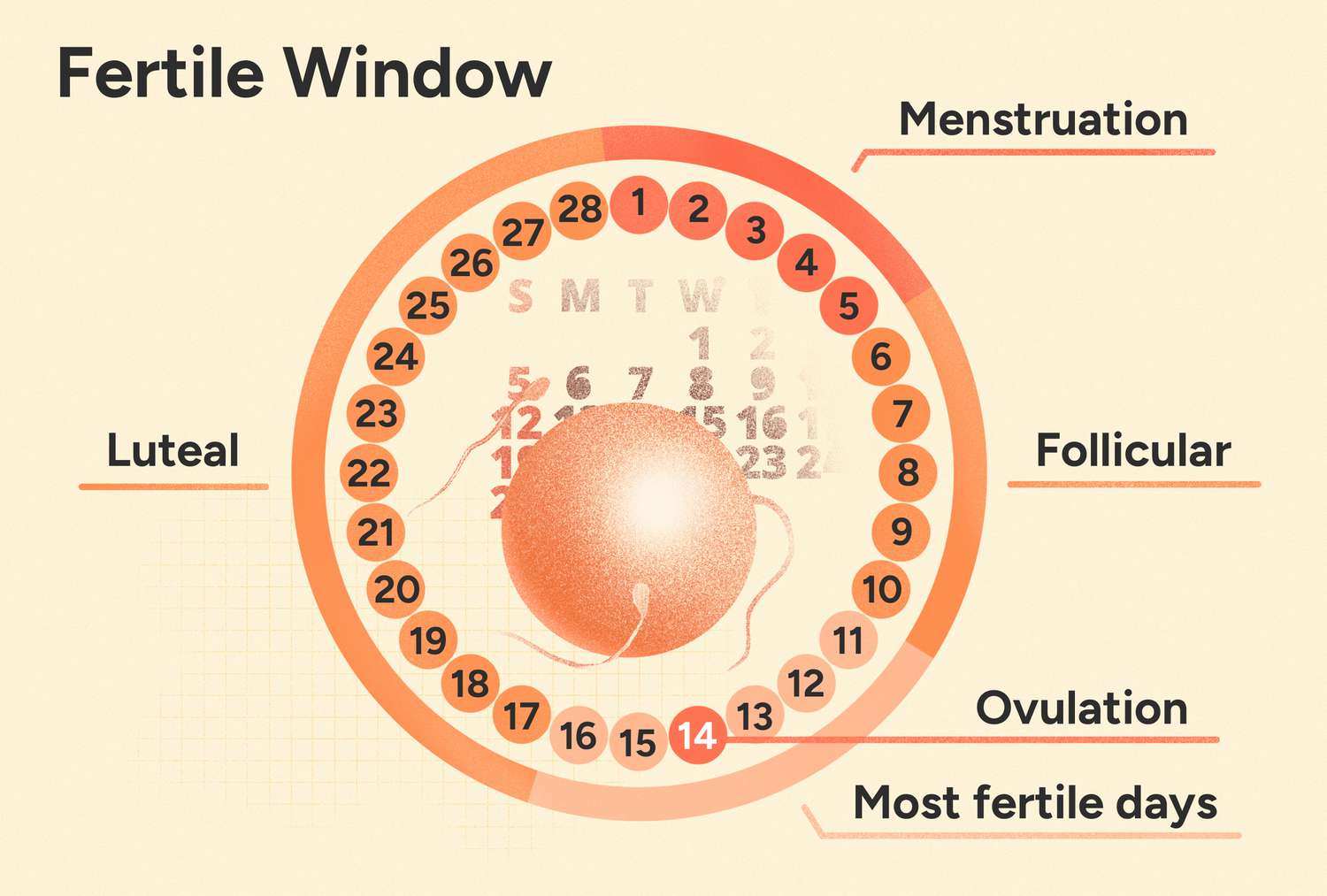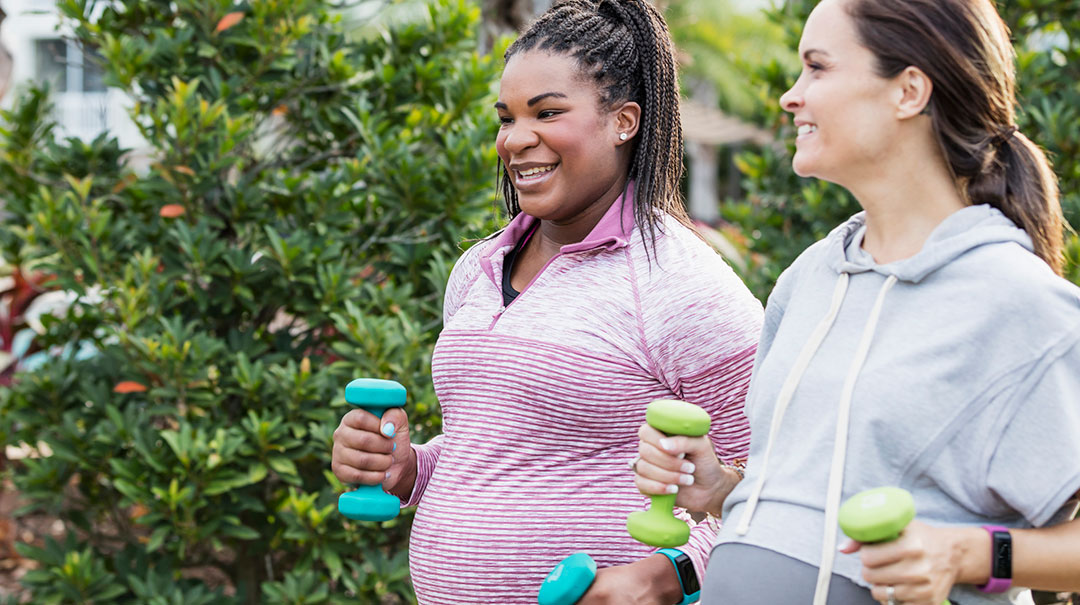Embarking on the journey to conceive a child is a deeply personal and often profound experience. For many couples, achieving pregnancy naturally is a preferred path, but it can sometimes be challenging. Fortunately, there are several strategies and lifestyle changes that can enhance fertility and improve the chances of conception. In this blog, we’ll explore ten essential tips for conceiving naturally, providing practical advice and insights to help you on your path to parenthood.
How to Get Pregnant Naturally – Click Here
1. Understand Your Fertility Window
One of the most crucial aspects of conceiving naturally is understanding your fertility window. The most fertile period for a woman is during the ovulation phase of her menstrual cycle. Ovulation typically occurs around the middle of the cycle, approximately 14 days before the start of the next menstrual period. Tracking ovulation can be done through various methods:
– Basal Body Temperature (BBT) Charting: Measure your temperature every morning before getting out of bed. A slight increase in BBT can indicate ovulation.
– Ovulation Predictor Kits (OPKs): These kits detect the surge in luteinizing hormone (LH) that precedes ovulation.
– Cervical Mucus Monitoring: Changes in cervical mucus consistency can signal ovulation.

Knowing when you are ovulating allows you to time intercourse for the best chances of conception.
2. Maintain a Healthy Lifestyle
A healthy lifestyle plays a significant role in enhancing fertility for both partners. Here are some key components to focus on:
– Balanced Diet: Eat a diet rich in fruits, vegetables, whole grains, lean proteins, and healthy fats. Nutrient-rich foods support overall health and reproductive function.
– Regular Exercise: Engage in regular physical activity to maintain a healthy weight and reduce stress. However, avoid excessive exercise, which can negatively impact fertility.
– Avoid Smoking and Excessive Alcohol Consumption: Both smoking and heavy drinking can impair fertility. Quitting smoking and moderating alcohol intake can improve your chances of conceiving.
– Manage Stress: High stress levels can affect reproductive health. Incorporate stress-reducing activities such as yoga, meditation, or deep-breathing exercises into your routine.

3. Maintain a Healthy Weight
Both overweight and underweight conditions can affect fertility. Maintaining a healthy weight is important for optimal reproductive health:
– Body Mass Index (BMI): Aim for a BMI within the normal range (18.5 to 24.9). Being either underweight or overweight can disrupt menstrual cycles and ovulation.
– Balanced Diet and Exercise: Achieving and maintaining a healthy weight involves a combination of a balanced diet and regular exercise.
If you are struggling to achieve or maintain a healthy weight, consider consulting with a healthcare provider or a nutritionist for personalized guidance.

4. Optimize Nutrient Intake
Certain vitamins and minerals play a crucial role in reproductive health. Ensuring you get enough of these nutrients can support your fertility:
– Folic Acid: This B-vitamin is essential for DNA synthesis and cell division. It’s especially important for women trying to conceive and during the early stages of pregnancy. Aim for at least 400 micrograms (mcg) of folic acid daily.
– Vitamin D: Adequate levels of vitamin D are associated with improved fertility. Consider getting vitamin D from sunlight exposure or supplements if necessary.
– Omega-3 Fatty Acids: These essential fats support reproductive health. Include sources of omega-3s, such as fatty fish, flaxseeds, and walnuts, in your diet.
A well-rounded diet should provide most of these nutrients, but supplements can be considered if needed.
5. Avoid Environmental Toxins
Exposure to certain environmental toxins can negatively impact fertility. To reduce your risk:
– Minimize Exposure to Chemicals: Avoid exposure to harmful chemicals found in pesticides, cleaning products, and personal care items. Opt for natural or organic alternatives when possible.
– Limit Exposure to Heavy Metals: Avoid consuming large amounts of fish known to be high in mercury. Also, be mindful of other sources of heavy metal exposure.
By reducing your exposure to environmental toxins, you can create a healthier environment for conception.
More Posts:
Dominant Player Performance Ratings: Real Madrid vs Real Betis 2-0; 2024 La Liga Breakdown
Why Is Christmas Celebrated: 5 Key Aspects of Its Rich History and Traditions
6. Practice Healthy Sexual Habits
Healthy sexual habits can enhance the chances of conception:
– Timing Intercourse: Aim to have intercourse during your fertile window. Engaging in regular intercourse throughout your cycle, particularly during the days leading up to and including ovulation, increases your chances of conceiving.
– Position Matters: While there is no definitive evidence that specific sexual positions improve conception rates, some believe that missionary or doggy style positions may facilitate sperm reaching the cervix.
After intercourse, it’s often recommended to remain lying down for about 15-20 minutes to give sperm the best chance of reaching the egg.

7. Monitor and Address Underlying Health Conditions
Certain health conditions can affect fertility. Monitoring and managing these conditions is crucial:
– Polycystic Ovary Syndrome (PCOS): PCOS can disrupt ovulation and menstrual cycles. If you suspect you have PCOS, consult a healthcare provider for diagnosis and treatment options.
– Thyroid Disorders: Both hyperthyroidism and hypothyroidism can impact fertility. Ensure your thyroid levels are within the normal range with appropriate medical management.
– Menstrual Irregularities: Irregular or absent menstrual cycles can signal underlying issues. Consult a healthcare provider for evaluation and treatment.
Addressing these health conditions can improve your chances of conceiving naturally.
8. Consider Partner’s Health
Fertility is a shared responsibility, and male fertility is just as important:
– Healthy Lifestyle: Encourage your partner to maintain a healthy lifestyle, including a balanced diet, regular exercise, and avoidance of harmful substances.
– Sperm Health: Factors such as sperm count, motility, and morphology can affect fertility. If there are concerns about sperm health, consider a semen analysis and consult a healthcare provider for guidance.
Both partners’ health and lifestyle choices play a vital role in achieving a successful pregnancy.
9. Track Menstrual Cycles
Tracking menstrual cycles can provide valuable insights into your fertility:
– Cycle Tracking Apps: Use cycle tracking apps to monitor your menstrual cycle, ovulation, and other symptoms. This data can help you identify your fertile window more accurately.
– Record Symptoms: Pay attention to symptoms such as changes in cervical mucus, basal body temperature, and ovulation pain. Recording these symptoms can help you better understand your cycle and optimize your chances of conception.
Regularly tracking your cycle can provide useful information for planning and timing intercourse.
10. Seek Professional Guidance
If you’ve been trying to conceive naturally for a year or more without success (or six months if you’re over 35), it may be time to seek professional guidance:
– Fertility Specialist: A fertility specialist can provide a thorough evaluation of both partners’ reproductive health and recommend appropriate treatments or interventions.
– Counseling and Support: Trying to conceive can be emotionally challenging. Consider seeking counseling or joining support groups to help manage stress and maintain emotional well-being.
Professional guidance can offer valuable insights and support to help you navigate your journey to conception. Conceive
When trying to conceive, what you eat can significantly impact your fertility and overall reproductive health. A balanced diet rich in essential nutrients not only supports your overall health but also creates an optimal environment for conception. Here’s a guide to the key foods and nutrients that can help increase your chances of getting pregnant faster.
1. Folic Acid-Rich Foods
Folic acid is crucial for preventing neural tube defects and supporting healthy cell division, which is essential for conception and early pregnancy development.
– Leafy Greens: Spinach, kale, and Swiss chard are excellent sources of folate.
– Fortified Cereals: Many cereals and grains are fortified with folic acid.
– Legumes: Beans, lentils, and chickpeas are rich in folate.
– Citrus Fruits: Oranges, grapefruits, and lemons provide a good dose of folic acid.
Aim for at least 400 micrograms (mcg) of folic acid daily, either through your diet or supplements.
2. Omega-3 Fatty Acids
Omega-3 fatty acids are essential for hormone production and can improve reproductive health. They also help balance your hormones and support a healthy pregnancy.
– Fatty Fish: Salmon, sardines, and mackerel are high in omega-3s.
– Flaxseeds and Chia Seeds: These are plant-based sources of omega-3s.
– Walnuts: Walnuts are a convenient snack and a good source of omega-3s.
Incorporate these foods into your diet at least twice a week for optimal benefits.
3. Whole Grains
Whole grains provide essential nutrients that support overall health and fertility. They help regulate blood sugar levels and maintain hormonal balance.
– Brown Rice: A good source of fiber and B vitamins.
– Oats: High in fiber and can help maintain stable blood sugar levels.
– Quinoa: Rich in protein and essential nutrients.
Opt for whole grains over refined grains to ensure you’re getting the maximum nutritional benefit.
4. Lean Proteins
Protein is important for hormone production and maintaining healthy reproductive systems. Choose lean sources of protein to support overall health.
– Chicken and Turkey: Lean meats that are low in saturated fat.
– Fish and Seafood: Provides essential nutrients and healthy fats.
– Eggs: A great source of high-quality protein and essential nutrients.
Including a variety of protein sources in your diet can support optimal reproductive health.
5. Dairy Products
Dairy products are rich in calcium and vitamin D, which are important for reproductive health and bone strength.
– Milk: Provides calcium and vitamin D.
– Greek Yogurt: High in protein and calcium.
– Cheese: A good source of calcium.
If you’re lactose intolerant or prefer non-dairy options, look for fortified plant-based milk alternatives such as almond or soy milk.
6. Antioxidant-Rich Foods
Antioxidants help protect cells from damage and are important for reproductive health. They can improve egg and sperm quality, enhancing fertility.
– Berries: Blueberries, strawberries, and raspberries are rich in antioxidants.
– Nuts: Almonds and walnuts are high in vitamin E, an antioxidant.
– Vegetables: Bell peppers, tomatoes, and carrots provide essential vitamins and antioxidants.
Incorporate a variety of colorful fruits and vegetables into your diet to maximize antioxidant intake.
7. Iron-Rich Foods
Iron is important for maintaining healthy ovulation and preventing anemia. It supports overall reproductive health and helps maintain adequate energy levels.
– Lean Red Meat: Beef and lamb are good sources of iron.
– Spinach and Leafy Greens: Provide plant-based iron.
– Legumes: Beans and lentils are rich in iron and can be combined with vitamin C-rich foods to enhance absorption.
Aim to include iron-rich foods in your diet regularly.
8. Zinc-Rich Foods
Zinc is vital for hormone production and reproductive health. It plays a role in regulating menstrual cycles and supporting sperm production.
– Pumpkin Seeds: High in zinc and easy to add to salads or snacks.
– Shellfish: Oysters and crab are excellent sources of zinc.
– Nuts and Seeds: Almonds and sunflower seeds also provide zinc.
Incorporating these foods into your diet can support overall reproductive health.
9. Hydration
Staying well-hydrated is essential for maintaining healthy bodily functions, including reproductive health.
– Water: Aim for at least 8 glasses of water a day to stay hydrated.
– Herbal Teas: Chamomile or peppermint tea can be soothing and hydrating.
Proper hydration supports optimal cellular function and hormonal balance.
10. Avoid Processed and Sugary Foods
While focusing on fertility-boosting foods, it’s equally important to limit or avoid processed and sugary foods, which can negatively impact reproductive health.
– Sugary Snacks: Reduce consumption of candies, pastries, and sugary drinks.
– Highly Processed Foods: Avoid foods with excessive additives, preservatives, and unhealthy fats.
Opt for whole, nutrient-dense foods to support optimal health and fertility.
Conclusion
Conceiving naturally involves a combination of understanding your fertility, maintaining a healthy lifestyle, and addressing any underlying health issues. By following these ten essential tips, you can enhance your chances of achieving a successful pregnancy and embark on the journey to parenthood with confidence. Conceive
Remember, while these strategies can improve your chances of conceiving naturally, each individual’s journey is unique. Patience, perseverance, and support from healthcare professionals can make a significant difference in achieving your fertility goals. Conceive














